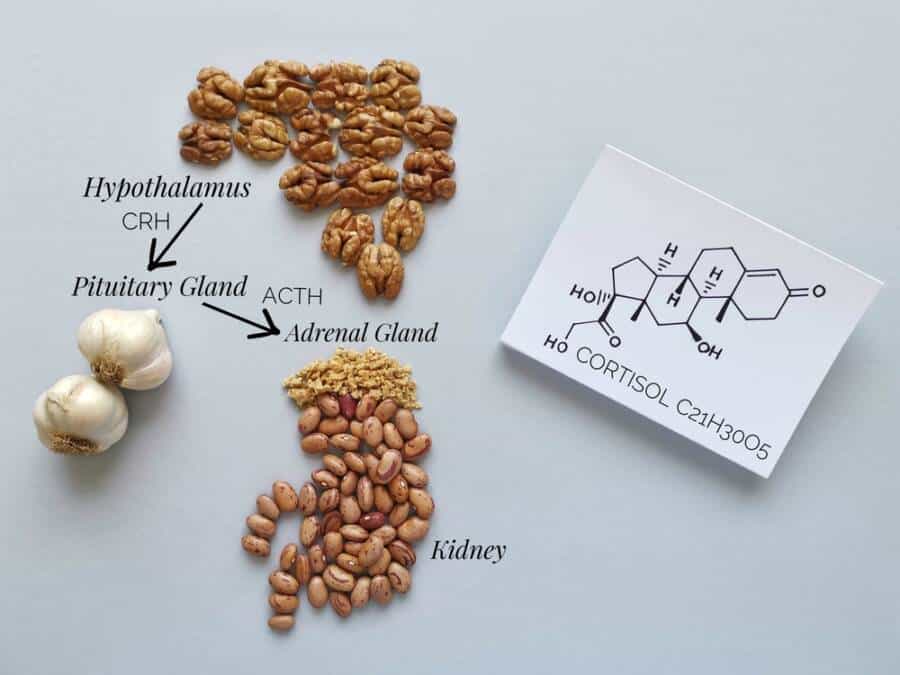Have you ever wondered why so many doctors talk about the importance of potassium?
Needless to say, potassium is one of the most important minerals in our bodies, and yet, people take it for granted. More than 98% of Americans are not actually meeting the recommended intake for potassium. This has to do with the fact that we tend to follow Western diets filled with processed foods instead of eating plenty of veggies, fruits, nuts, and beans.
And let’s say you don’t know for sure if you’re getting the recommended daily amount of potassium… Well, your body will let you know because potassium deficiency leads to several symptoms and signs, including fatigue, muscle cramps, weakness, digestive issues, heart palpitations, numbness, and even breathing difficulties.
With that in mind, let’s find out why you need to get more potassium in your diet and what you can do to get the right amount of this essential mineral.

1. Potassium plays an important role in heart muscle function
The most important role potassium plays is definitely maintaining good heart function. Getting the right amount of potassium daily (at least 3,500 mg) is crucial for optimal muscle function. Failing to do so will most likely increase your chances of developing left ventricular hypertrophy, as well as heart failure.
Another severe effect of having a potassium deficiency is ventricular arrhythmia. People with ischemic heart disease (a condition in which the blood flow, therefore the oxygen supply is less than normal) may experience irregular heartbeats from potassium deficiency, too.
If you already have heart issues, make sure you’re getting enough of this vital mineral.
2. The intake can lower your blood pressure
There’s no secret that high blood pressure patients are advised to lower their sodium intake, yet it’s no secret either that most of them don’t respect these guidelines. The American diet has a ton of sodium in it; that’s why more than 108 million American adults have high blood pressure. Maybe you’re one of them, too, so do you know your numbers?
If you can’t lower them, maybe it’s time to look at your plate. Studies suggest that increasing your potassium intake through the foods you eat on a regular basis could lower both systolic and diastolic numbers. It seems that the mineral is able to do that by dilating the blood vessels while maximizing the elimination of sodium via urine.
3. It may minimize the risk of stroke
Studies also indicate that following a diet abundant in potassium can easily lower the risk of stroke. And while we already know that consuming foods that contain it can lower blood pressure, having a high intake of this mineral may also prevent what doctors call arterial stiffness (a common risk factor for atherosclerosis).
According to a recent study, those who have a higher potassium intake benefit from a decreased risk of ischemic strokes. Another study pointed out that eating these foods regularly may minimize the risk of having a stroke. So, are you ready to add more of them to your diet? (*Rest assured, we will expose the best sources of potassium later on.)
4. It could prevent bone loss, too
First off, calcium couldn’t do the job all by itself, it needs some help, and that help comes from potassium, too. Therefore, consuming foods rich in minerals plays an important part in bone demineralization prevention.
Because when you’re prone to bone loss, it means that you’re actually losing a wide range of minerals, not only calcium. Numerous nutrients work together to keep your body in tip-top shape, and while some are more important than others, it doesn’t mean you should skip those.
If you have any issues with your bones, make sure you get enough potassium from your diet because it can slow down the bone loss process by minimizing the amount of calcium you lose when peeing. Plus, studies point out that having adequate levels of minerals in the body could significantly reduce your risk of osteoporosis and other bone-related diseases.
Another way to make sure that we are taking care of our bones is to make sure that our joints are also in great shape! To achieve that you can always take some natural supplements that are going to aid your joints and immune system!

5. It could prevent the formation of kidney stones
As the name suggests, kidney stones are basically hard deposits consisting of salts and minerals that form inside your kidneys. In most cases, people with kidney stones experience severe back pain, nausea, fever, vomiting, chills, and even blood in their urine. Luckily, you could prevent this unfortunate event from happening by eating foods rich in this essential mineral.
It seems that low potassium levels in the body are often associated with the formation of kidney stones, so make sure you get enough of this mineral, even if you don’t have any issues with kidney stone formation.
6. It may keep diabetes at bay
Even your blood sugar levels could be positively impacted by this key mineral. This essential mineral is responsible for keeping diabetes at bay because this mineral is actually required by your body for insulin secretion. Besides, studies have shown that low potassium levels in the body could easily translate to increased glucose intolerance, as well as type 2 diabetes.
Important!! It is crucial to understand that potassium is able to prevent diabetes, but if you already have this disease, talk to your doctor about how much of this mineral you should actually take. Way too much could negatively affect your condition, eventually leading to irregular heartbeat, paralysis, and even heart attack.
7. It could balance your metabolism
Not all of us are born with fast metabolisms (although all of us have that one friend who can eat tons of food without gaining weight; yeah, we hate them, too). What if I tell you that you can change that?! Would you believe me?
Because potassium may help in the metabolic conversion of certain nutrients such as carbohydrates and fats, therefore you’ll benefit from a faster metabolism. As a matter of fact, several studies have shown that getting the right amount of potassium through food is also essential in the coalescence of proteins, meaning that cell growth and tissue regeneration won’t get negatively affected, quite the opposite.
8. It prevents muscle cramps
Muscle cramps are sudden and involuntary contractions of your muscles. In general, they occur in one or both of your legs due to exercising, injuries, decreased blood flow, smoking, obesity, medication, dehydration, and deficiency of potassium, sodium, or calcium. Thankfully, in most cases, muscle cramps are harmless, but if you can avoid them, why don’t you?
You most definitely don’t want to experience pain, muscle weakness, and swelling in your legs, so try to consume more potassium-rich foods. Studies have shown that proper potassium levels help transport calcium into cells, therefore preventing muscle cramps. If you experience muscle cramps from time to time, add more potassium-rich foods to your diet.

9. It supports optimum fluid levels
Ever wondered why athletes are given bananas after intense physical workouts? No? Well, One of potassium’s greatest roles in our bodies is to balance the amount of sodium that enters and exits our cells, or better said, potassium is responsible for controlling the amount of fluid our bodies retain and excrete.
So, eating foods abundant in this mineral helps maintain your body’s pH levels, which basically ensures that your body’s cellular processes are properly done. When you don’t get enough amounts of it, you’ll most likely suffer from fluid retention, which can eventually lead to edema.
10. It improves your mood
A study published in the British Journal of Nutrition a couple of years ago explained the connection between potassium intake and mood. Researchers found that people who eat potassium-rich foods on a daily basis are less likely to develop depression and anxiety. In general, it seems that those who follow a high-potassium diet are happier than those who don’t.
But how is this possible? Well, the same study proved that potassium plays an important role in the regulation of the hormone linked to happiness, a.k.a. serotonin. So, when you’re feeling blue, it would be a good idea to look at your diet first.
How to increase your potassium levels in the body
Now that you know all the benefits, you may be eager to find out the foods that are rich in this key mineral. If that’s the case, here are some:
- Avocados: One medium-sized avocado will offer you approximately 1,000 milligrams
- Prunes: 100 grams of prunes equal more than 1,000 milligrams;
- Bananas: One large banana packs around 480 milligrams;
- White beans: One cup gives you more than 600 mg;
- Sweet potatoes: 440 milligrams per cup;
- Salmon: Three ounces offer over 380 milligrams;
- Spinach: 165 milligrams per cup.
Eating the foods we’ve mentioned above regularly will most likely keep your potassium levels high, so make sure to add all of them to your diet.
Potassium is good for a lot of things, but there are a lot of other minerals and vitamins you can get from foods that are going to be impactful! Here you can read all about the most nutritious foods you can eat after surgery!













